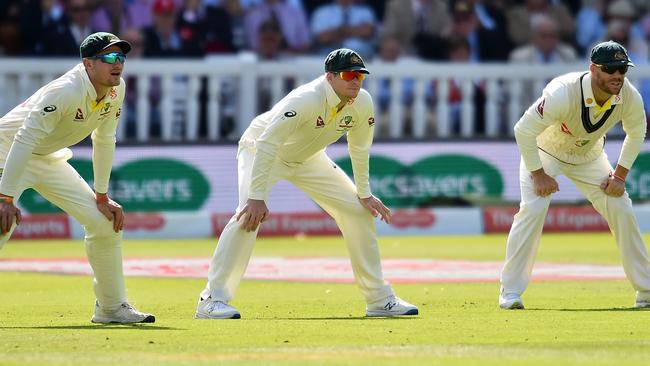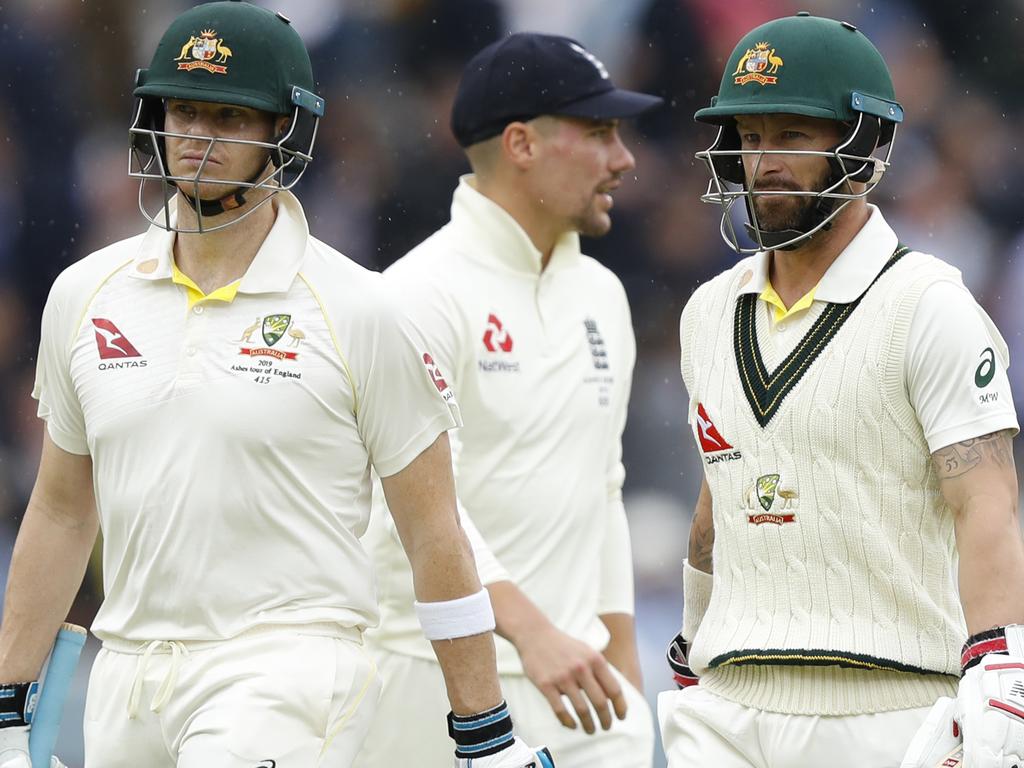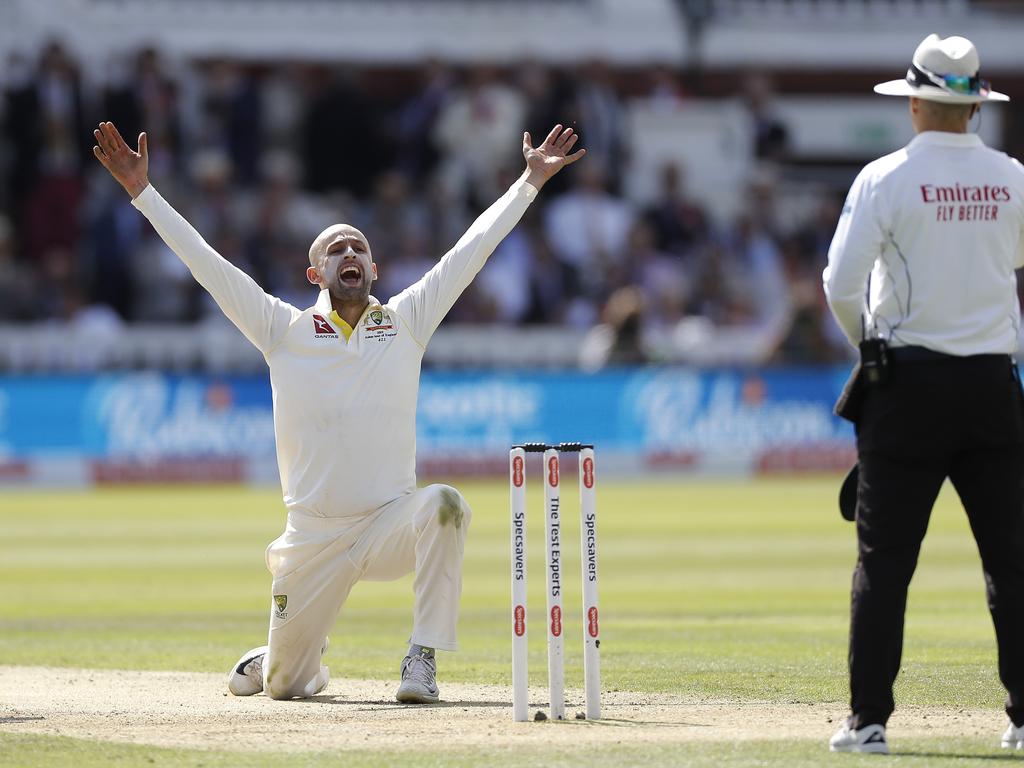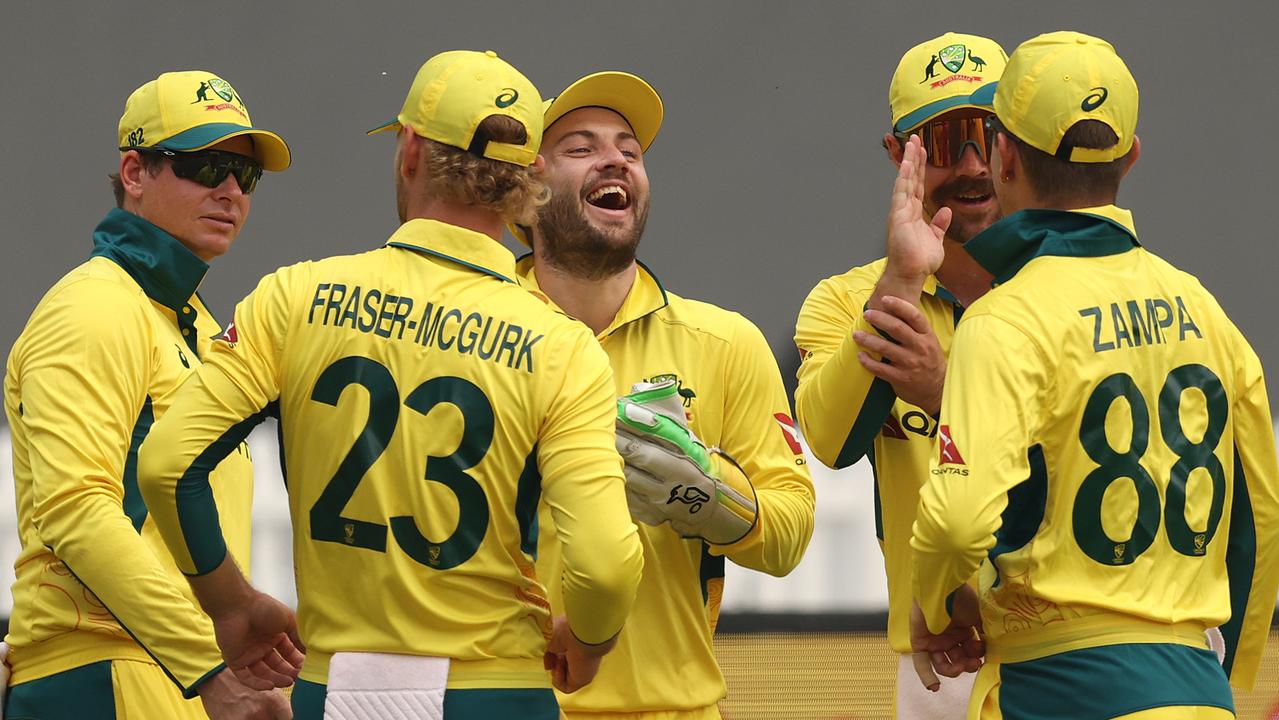Ashes 2019: Steve Smith seems the measure of England’s bowlers

Given cricket’s determination to grind every event into data, it is surprising that no innovator has rolled out a boo-o-meter to gauge the state of public indignation, real or feigned, trailing Steve Smith.
As Smith descended the steps of the Lord’s pavilion yesterday, they certainly seemed quieter than usual — quieter, even, than those, unprovoked, for Ricky Ponting a decade ago.
Perhaps reality has dawned, that this is breath best saved if Smith repays hostility with such interest as at Birmingham. Or else the clutch moment had been identified: as goes Smith, so goes Australia. Anyway, whatever you do, don’t provoke him, eh? I mentioned sandpaper once but I think I got away with it …
Don’t even poke fun at Smith’s repertoire of preliminary gestures: the running and skittering, the swivelling and toe-touching, the way as he approaches the crease that he rests the bat on his shoulder like a hobo his bindle. And the fidgeting. His fresh air shot preparatory to his first ball facing away from the bowler. His fussing about the crease like a proud homemaker. His hand gesture to convey a ball skimming from the surface, as though conducting an imaginary orchestra. No, don’t even think about that: put it all to one side and wonder.
Yesterday’s single session at Lord’s, under low cloud and floodlights, was one in which a team could very nearly have been bowled out: in similar conditions three weeks ago, Stuart Broad and Chris Woakes wiped Ireland away in 15.4 overs.
There remain questions about the bulk of Australia’s batting, provisionally pieced together and little tested as a unit. But around Smith swirl another set of questions altogether, condensing to does anyone know how to get him out? His technique seems like a task to test Alan Turing.
The Australian consensus yesterday was to offer as few shots as possible — a policy, like any involving a degree of premeditation, with its own dangers, but also with an eye to the future, to better batting conditions to come.
Early on, short bowling from Jofra Archer and Stuart Broad helped the visitors’ cause. Fuller lengths and tighter lines made the policy growingly dangerous.
Setting yourself to play late is likewise a purposeful notion. But when the bowler is as slippery as Archer, lateness easily becomes retrospectivity, as it did for Cameron Bancroft. Archer celebrated this maiden Test wicket by bursting a delivery through Bairstow’s gloves that the keeper did well to retard let alone catch, and also saved four overthrows with a superbly agile save at mid-on. He is some cricketer.
It was a measure of the menace of England’s attack in the second hour, in fact, that they scarcely seemed to miss James Anderson at all. They also maintained a reasonable over rate, Broad and Woakes bowling from economical run-ups, Archer almost as quick getting back his mark as he is when he saunters in.
Yet however penetrative England’s bowlers appeared, they were always to be measured by their impact on Smith, his wicket arguably worth more than the three they claimed. A contest unfolded of mutual denial, of competitive neutrality.
Smith faced forty deliveries. Three he worked for singles; two he hit to the boundary, behind and in front of square leg; one, Ben Stokes’ first, he genuinely missed as it held its line. But that was about it. To more than half his deliveries, he either offered no stroke or played his ghost stroke afterwards, with a pivot and a swish.
The data miners dug up that Smith had not left such a proportion of deliveries faced since Michaelmas 2014 or something. From Smith it was certainly determined stuff. In sticking to a line that deprived Smith of his usual leg side singles, England also evinced determination, even if it recalled Ambrose Bierce’s definition: ‘Patience, n: a minor form of despair disguised as a virtue.’
The gloom then arrived a little later than expected but remained as long as feared. The crowd lingered loyally through another replay on the big screen of the World Cup final, and there was a happy cheer at 3pm as Jos Buttler demolished the stumps ahead of Martin Guptill’s dive, but resignation set in an hour and a half later with a further cloudburst just before a planned inspection. The covers were removed and replaced an hour later, as if for practice.
The weather looks more hopeful for cricket’s reappearance this morning. The bowlers will be fresh; so, of course, will Smith. Will anybody boo? Will anybody dare?




